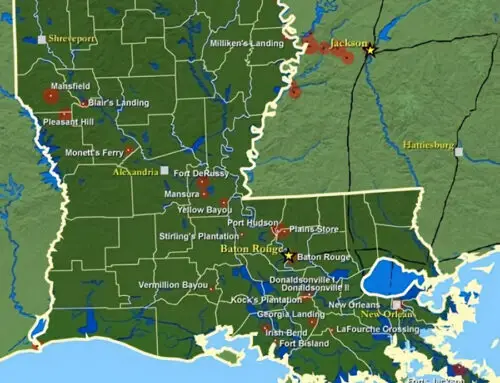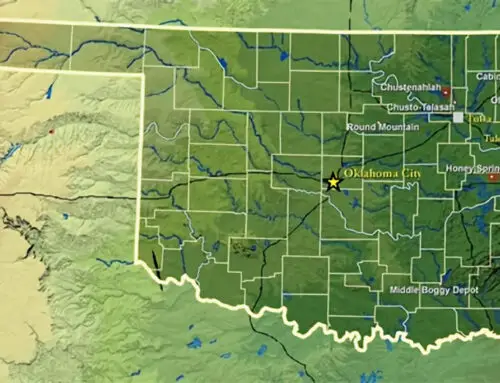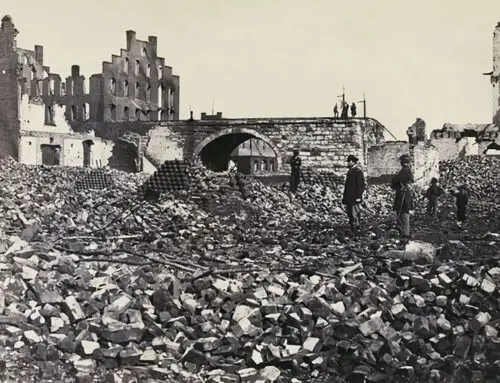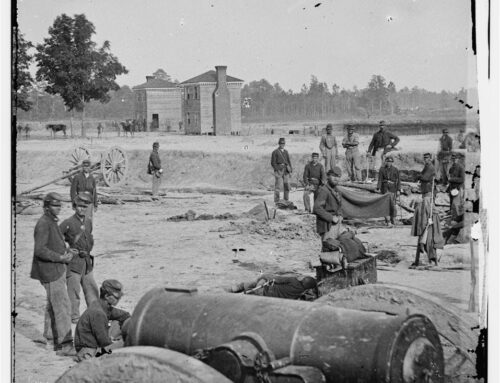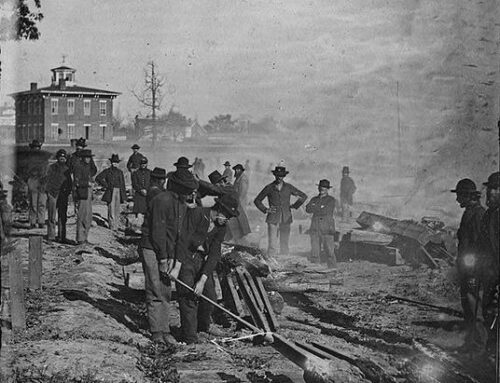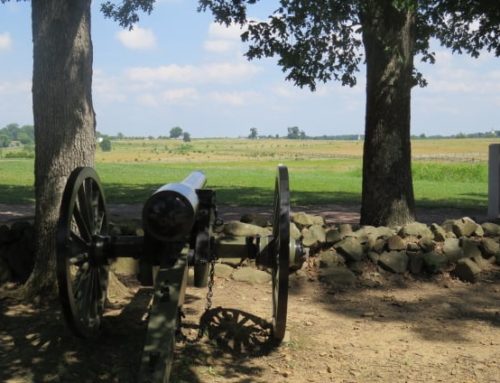February 11th – 16th 1862
Fort Donelson is a Confederate fort located near the town of Dover, Tennessee. The fort overlooks the Cumberland River. In overall command of the Western Department was Confederate General Albert Sidney Johnston. General Lloyd Tilghman was the commander of Fort Donelson.
General Johnston made his headquarters at Nashville, Tennessee.
He was determined to defend Nashville and to do this the Cumberland River would need to be defended and remain in Confederate hands.
To help defend Nashville and Fort Donelson General Johnston ordered Brigadier General John B. Floyd, Brigadier General Gideon J. Pillow and Brigadier General Simon B. Buckner to oversea the operation.
Fort Donelson Garrison
Fort Donelson had a large and well-armed garrison. It consisted of 28 infantry regiments
- 13 Tennessee Regiments
- 2 Kentucky Regiments
- 6 Mississippi Regiments
- 1 Texas Regiment
- 2 Alabama Regiments
- 4 Virginia Regiments
The garrison also consisted of:
- 2 Independent Battalions
- 1 Cavalry Regiment
- 6 Light Batteries
- 17 Heavy Guns
Total of 18,000 Confederate troops defending Fort Donelson.
At around noon on February 6th 1862 the garrison at Fort Donelson began to hear a low grumbling sound off in the distance. They knew immediately what this meant. Fort Henry only twelve miles away was under attack. At midnight on February 7th survivors of Fort Henry arrived at Fort Donelson. Two battalions of troops were able to escape the fort before it was captured by the Union. It was explained that Union gunboats came at the fort very quickly and seized it.
The men in Fort Donelson knew they would be next. They quickly went about strengthening their defenses as much as possible.
General Buckner had 6 regiments and 2 batteries under his command and was positioned on the right flank in order to cover any land assaults from the Union. Six brigades and four batteries covered the left flank under command of General Bushrod R. Johnson.
General Grant had 25 regiments and seven batteries. He had a total of 15,000 troops when he arrived at Fort Donelson, by the end of the battle this number had grown to 27,000.
The Union army laid siege to Fort Donelson even though when Grant initially arrived at the fort his forces were actually outnumbered by the Confederates. If the Confederates would have attacked Grant’s army when he first laid siege to Fort Donelson it is likely they would have defeated him.
The Confederates chose not to attack and soon more Union troops began to arrive and reinforce the army besieging Fort Donelson. The Union sent out sharpshooters to harass the Confederates, and the Confederates sent out skirmishes to shoot back at the Union sharpshooters.
The Union decided to launch an assault on the fort with three regiments from Illinois, the 49th, 17th, and 18th Illinois regiments. These were green troops with little experience who were ordered to assault a heavily defended fort, they were very confident in their ability to take the fort. They began their attack which was quickly beaten back by the entrenched rebel troops safe in their rifle pits.
The Illinois regiments quickly rallied and attacked a second time and were beaten back once more, not able to continue the attack they withdrew. The attack lasted only 15 minutes and in that time the Illinois men lost 149 men either killed or wounded in the assault.
With superior military tactics and a sense of bravado seldom demonstrated by Union commanders, Grant was able to take the fort in two days of fighting. The losses were low for both the Union and the Confederates, with each side taking about 2,200 casualties, respectively.
On the morning of February 16th, 1862, the garrison of Fort Donelson fell to the presence of the military master tactician of the North, General Grant. 12,000 Rebel prisoners of war were taken and the terms of the surrender are to be noted. It seems that when Grant ordered the Confederate commander, General Buckner, to terms of unconditional surrender, the Rebel general hesitated.
Citing words like ungenerous and unchivalrous, the staunch Rebel commander finally relinquished the prize to his superior adversary, General Grant. The battle was over and Grant had another impressive victory under his belt. The clash of the two finest war generals of the conflict was on the horizon, Lee versus Grant. This was the inevitability of the situation.

